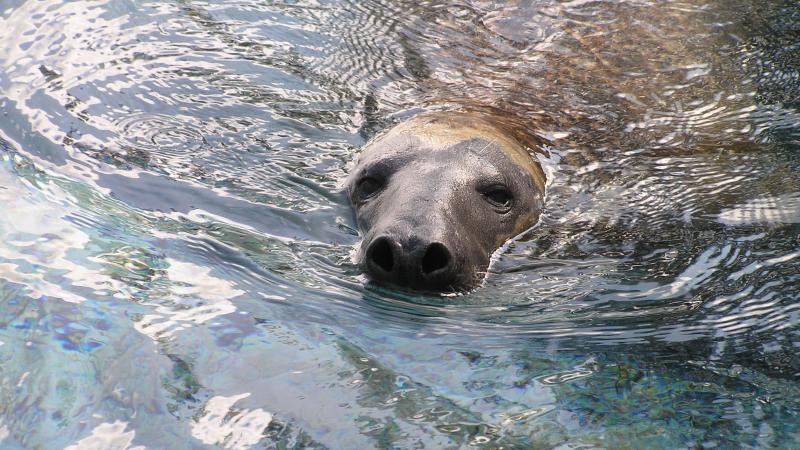
Shallow water zones and deadwood bundles create new habitats for fish and are more effective than stocking fish. | Photo: Thomas Klefoth
Professor Jean-Claude Burgelman, Director of the Frontiers Planet Prize said: “Faced with immense threats to people and planet, we need bold, transformative solutions, rooted in evidence and validated by science. Innovative yet scalable solutions are the only way for us to ensure healthy lives on a healthy planet.”
One of these solutions, which belongs to the category “Nature-based solutions and restoration of ecosystems”, is described in the study by Prof. Robert Arlinghaus and his team: The revitalization of lakes through the creation of shallow water zones and the introduction of dead wood. Millions of fish are released into bodies of water around the world in order to strengthen natural fish stocks. The study published in the journal Science shows that this so-called fish stocking practice is not always successful and how it can be done better. The special feature of the study by Arlinghaus and his team is, among other things, the close connection between research and application and the implementation of repeated experiments at the level of entire lakes in cooperation with angler communities.
Adding habitats is better than stocking more fish
In a before-and-after-control experiment over six years in 20 pit lakes, the research team compared the effects of releasing fish and enhancing habitats on fish stocks. “This was a unique field experiment in which we investigated different management options at the level of the entire ecosystem in close cooperation with a large number of angling communities. There has never been such a large, repeated and, above all, controlled whole-lake experiment in this form before. I am delighted that our research has now been awarded the National Frontiers Planet Prize”, said the initiator and coordinator of the project, Professor Robert Arlinghaus.
“Over a period of six years, around 160,000 fish and many other animal and plant species were sampled before and after the implementation of measures to investigate how the respective groups of organisms respond to the creation of habitats or the introduction of a total of 40,000 individually marked fish”, added the study's lead author, Prof. Johannes Radinger, a former scientist in Robert Arlinghaus' working group and now a professor at Magdeburg-Stendal University of Applied Sciences. “The study showed that ecosystem-based management, in particular the creation of shallow water zones, sustainably increased the fish population in the lakes and the reproduction of fish and also promoted the diversity of other groups of organisms such as dragonflies or aquatic plants”, explained Dr. Sven Matern, shared first author of the award-winning study and former doctoral student of Robert Arlinghaus. By contrast, the common practice of stocking fish, which many angling communities, fisheries managers and other nature conservationists around the world often adhere to, failed in the experiment. The introduction of deadwood as a structural element showed positive effects on fish and other organisms depending on the water body and species, but was less successful than the creation of shallow water zones.
Angling communities in organized clubs as important partners
The BAGGERSEE research and implementation project, which was funded by the two German ministries BMBF and BMUV and the Federal Agency for Nature Conservation from 2016 to 2022 and formed the basis of the Science publication, was carried out in close cooperation with dozens of angling clubs organized in the Anglerverband Niedersachsen e.V. (AVN) – a large angler association in Lower Saxony, Germany. Hundreds of anglers were involved in the implementation of management measures and data collection. Fisheries biologists from the AVN planned and coordinated the implementation of the measures. “The results have a direct impact on the way angling clubs manage lakes. A follow-up knowledge dissemination project is currently underway in which the results will be communicated to angling clubs throughout Germany and beyond the Lower Saxony project region”, said Prof. Thomas Klefoth from Bremen University of Applied Sciences, who conceived the BAGGERSEE project together with Robert Arlinghaus and formerly coordinated it as a fisheries biologist at the AVN.

Prof. Robert Arlinghaus
© Stefan Klenke
"We have put the likelihood of success of ecosystem-based measures on a scientific footing. It is essential that the improvement of ecosystems includes the most important limiting habitats."
Freshwater fish are endangered
Freshwater fish are among the most endangered vertebrates in the world. In Germany, for example, every second species is considered threatened or extinct according to the Red List of freshwater fish. One of the main reasons for this is the loss of suitable habitat. Fish declines have far-reaching consequences for water bodies and commercial and recreational angling fisheries. Effective conservation and restoration measures are needed to reverse the decline in fish populations. “One promising approach is ecosystem-based management, which aims to improve or restore key ecological processes, habitats and species relationships, rather than focusing on removing individual stressors or supporting individual species via fish stocking alone”, said Robert Arlinghaus. However, this comprehensive approach is often costly and associated with high bureaucratic hurdles.
Ecosystem-based management pays off
Policy makers are therefore often reluctant to invest in ecosystem-based management until there is solid scientific evidence of its effectiveness. “With our large experimental field study, which also included control waters and thus produced robust results, we have now put the likelihood of success of ecosystem-based measures on a scientific footing. It is essential that the improvement of ecosystems includes the most important limiting habitats. In steep pit lakes, these are shallow water zones, but in other types of water bodies, other habitats may be more important, such as the restoration of floodplains in rivers”, explained Robert Arlinghaus.
National champions with the chance of 1 million USD in funding
The National Champions for scientific breakthroughs in the field of sustainability were selected by a jury of 100 renowned sustainability researchers worldwide, chaired by Professor Johan Rockström from the Potsdam Institute for Climate Impact Research (PIK). The National Champions will now move on to the final round of the competition, where three international champions will be presented in June 2025, each receiving USD 1 million for their further research.







